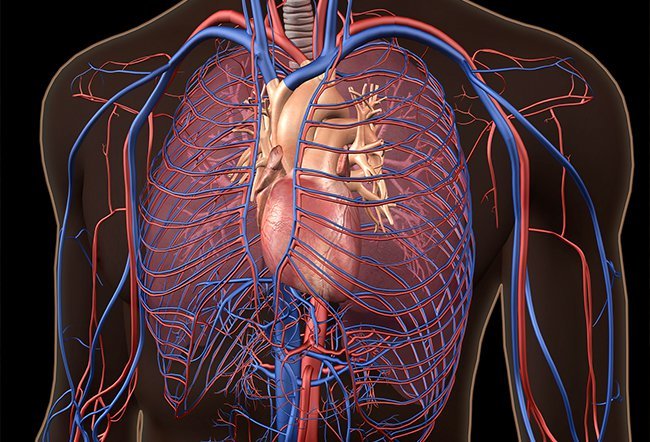What Are the Major Organs of the Body?

There are about 78 organs in the human body, all of which coordinate with each other to ensure that the body functions properly. While each organ serves a specific function and is important to overall health, some organs are vital for survival.
9 major vital organs
- Heart: The heart is the main organ of the cardiovascular system. It is the size of a fist and is located just behind and slightly left of the breastbone. It pumps blood through a network of arteries and veins throughout the body.
- Brain: The brain is one of the most complex organs of the body, made up of more than 100 billion nerves that help other organs communicate with each other..
- Lungs: The lungs are a pair of spongy, air-filled organs that are part of the respiratory system and located on either side of the chest (thorax).
- Kidneys: The kidneys are a pair of bean-shaped organs that are part of the urinary system and located on either side of the spine, below the ribs, and deep in the abdomen.
- Liver: The liver is the largest internal solid organ in the body located on the right side of the abdomen. It has multiple functions, the most important being energy production and metabolism.
- Skin: The skin acts as a protective barrier against bacteria or fungi from entering the body. It maintains body temperature and pH balance.
- Bones: Bones not only support organs and muscles but also play a major role in calcium metabolism in the body.
- Adrenal glands: These glands secrete hormones that help the body deal with stress. If these organs fail, the body may go into a potentially fatal shock.
- Hematopoietic system: Blood consists of red and white cells and platelets. If this organ system fails, it can lead to severe bleeding or death from severe infections.
Functions of major organs and conditions that can damage them
| Organ | Functions | Conditions that may damage the organ | Possible symptoms of organ damage |
|---|---|---|---|
| Brain | Controls all other organs and their functioning |
|
|
| Heart | Pumps blood to deliver a continuous supply of oxygen and other nutrients to other organs |
|
|
| Lungs | Helps oxygen breathed air to enter the red cells in the blood |
|
|
| Kidneys | Filters blood and removes waste products through urine |
|
|
| Liver | Removes waste products and foreign substances from the blood, regulates blood sugar levels, and produces essential nutrients such as albumin |
|
|
What is organ transplantation?
Organ transplantation may be the last resort of treatment for extensive organ damage. It is a life-saving surgery that is currently available only for the following organs:
| Organ | Duration |
|---|---|
| Heart | 4-6 hours |
| Lungs | 4-6 hours |
| Kidneys | 24-36 hours |
| Liver | 8-12 hours |
After organ transplantation, patients must take immunosuppressants for the rest of their lives to avoid rejection of the organ that has been transplanted.
